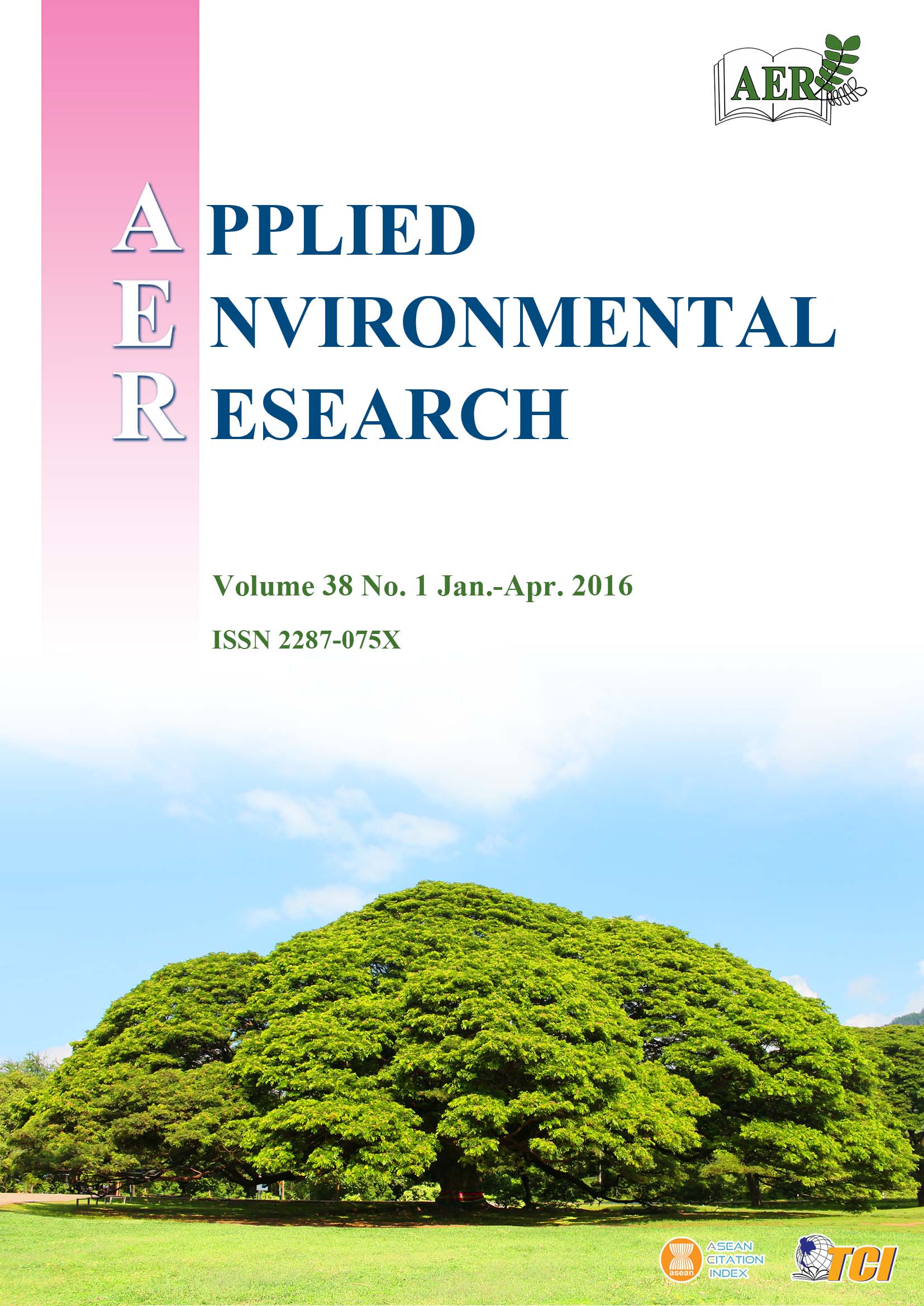Seed Germination and Growth Parameters of Zea mays L. as Influenced by Municipal Solid Waste Incineration Fly Ash (MSWIFA) and Sewage Sludge (SS) Amended Soil
Main Article Content
Abstract
Seed germination trials have relevance in measuring soil toxicity. The current study was there-fore conducted to investigate the effect of municipal solid waste incineration fly ash (MSWIFA) and sewage sludge (SS) from the Phuket municipal waste incinerator and wastewater treatment plant as fertilizer substitutes on seed germination and growth parameters of sweet corn (Zea mays L.). A field experiment was conducted at the National Corn and Sorghum Research Station, Nakhon Ratchasima Province, using a randomized complete block design (RCBD). The treatments conditions were: 1) non-amended soil, 2) 378.125 kg MSWIFA ha-1, 3) 543.75 kg SS ha-1, 4) 756.25 kg MSWIFA ha-1, 5) 1087.5 kg SS ha-1, and 6) 378.125 kg MSWIFA ha-1 + 543.75 kg SS ha-1. The results indicated that application rates of MSWIFA and SS have profound effects on plant establishment and growth characteristics. The highest germination index (22.26), vigor index (146.4), leaf number (5.65), and fresh and dry weight (5.78 and 2.35 g plant-1), respectively) were recorded from seeds treated with SS (1087.5 kg ha-1), while the highest seed germination was found in 378.125 kg MSWIFA ha-1 + 543.75 kg SS ha-1. The result suggested the alternative use of MSWIFA and SS without addition of fertilizer on agricultural soils.
Article Details

This work is licensed under a Creative Commons Attribution-NonCommercial 4.0 International License.
Published articles are under the copyright of the Applied Environmental Research effective when the article is accepted for publication thus granting Applied Environmental Research all rights for the work so that both parties may be protected from the consequences of unauthorized use. Partially or totally publication of an article elsewhere is possible only after the consent from the editors.

